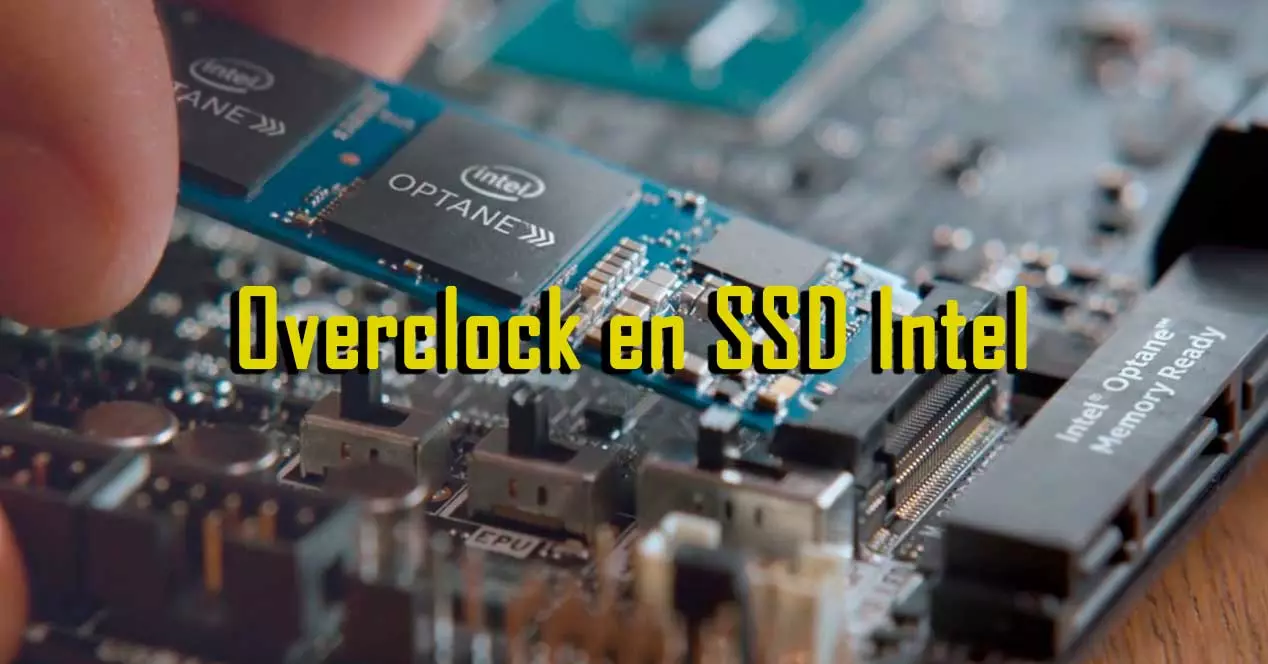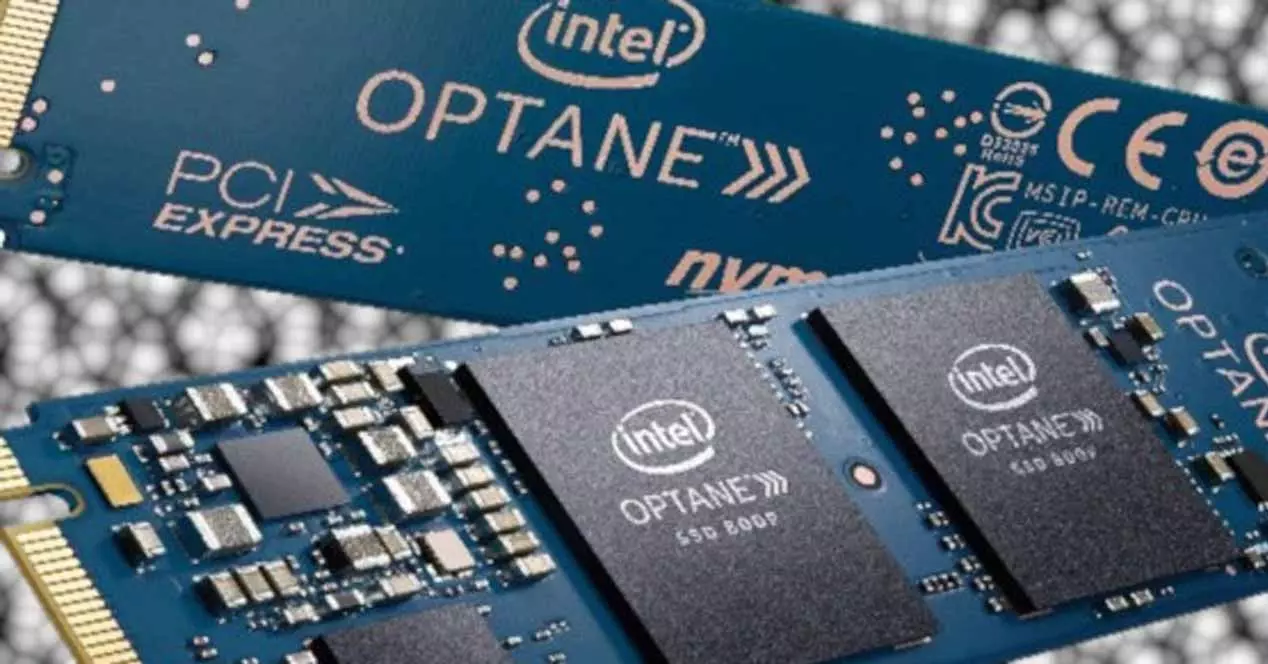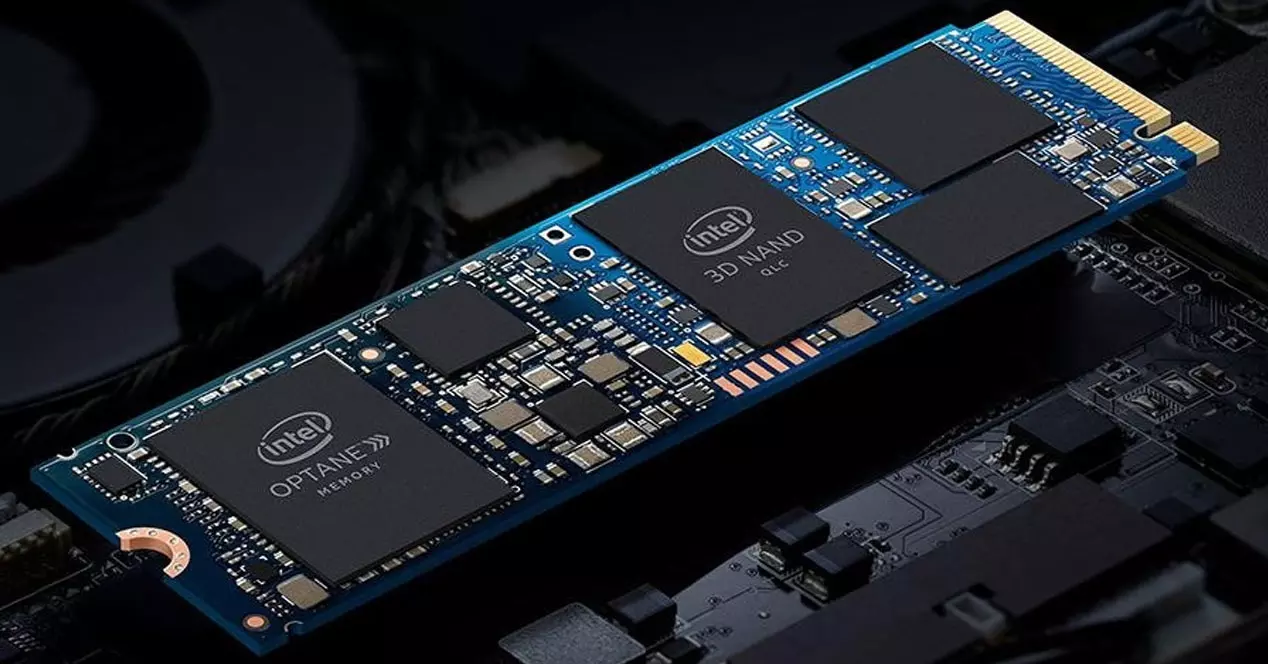
We all know what an SSD is, almost all of us are clear about the concept of Solid State Drive as such and logically we see its benefits. But, what if we could buy a specific model that had the ability to adjust the speed according to our needs? We are talking about overclocking an SSD, a concept that together with this term and product sounds illogical at first, but which would fit within the idea of adjustable speed. Well, Intel talks about it and… The experiment on the overclock an SSD it was cancelled.
In case you didn’t know, Intel has a specific overclock department where dan ragland has a mission: to manage it and push the products to the limit. What for many is a hobby where they spend time and resources to break a record, where there are professionals in the sector who compete for excellence and down to the last MHz, for Intel engineers it is child’s play. Ragland spoke in an interview about something quite curious and that we have referred to: overclocking an SSD. Why couldn’t the blue giant do it successfully?
Intel experimented with adjustable speed boost for SSDs
The concept of overclockable SSD is a complicated thing and Intel knew it, but the company’s approach reveals behind Ragland how they try to push each product or idea to the limit, which is very interesting because of the company’s way of thinking. The statements of Director of Overclocking at Intel When asked about the overclocked products that did not see the light of day, they are, as they say, “pure gold”:
Yes, we love to experiment. Say any (product) and we sure have tried to overclock it! All kinds of products from different categories. We’ve talked about laptops and desktops, and there have also been other things we’ve tried to overclock. I don’t want to imply that we’ve reviewed everything Intel has done, but when a new product category comes out, we look at it and ask if there’s any margin. We wonder if there is a market for the overclock. We ask consumers if they want that, or if it will have any value. I’ll give you an example: I’ve done some pioneering work on SSD overclocking.
In fact, there is a lot of room for improvement, at least when we look at overclocking SSDs, because just like a CPU they have their own power limits and, depending on whether you can cool it down or what environment you’re in, there’s a margin. But when we evaluated it and we asked ourselves if the data was at risk, we asked the market and we did surveys and finally we made the decision to don’t go that way. It’s something we always keep an open mind about, but at the time that was the decision.
Overclock an SSD: Miscellaneous Problems
Logically, an SSD stores information and works, offers and receives it at an increasingly high speed in terms of transfer rate per second (MB/s or GB/s). In any case, it is information that can be insubstantial or on the other hand it can be vital, therefore it has the maximum relevance in many cases. Raising the internal frequency of an SSD as if it were a CPU or GPU has very important repercussions, since having instability in certain frequencies can lead to incorrect data storage and therefore to corrupt information and to totally or partially damaging files.
This is a problem derived from the security and integrity of that data, but at a technical level, increasing the frequency and with it the speed implies that they would have to be added more voltage controls to cells and to the controller in addition to upgraded power systems for such SSDs, which raises the complexity and cost too much to be considered, they basically don’t justify the performance increase.
For this reason, Intel decided to cancel this experiment of overclocking an SSD, although curiously it remains expectant on this subject. Is it possible that they will get it in the future? Possibly not given the increasing complexity of the cell system with each generation. It would have to be something totally revolutionary that we don’t know if the average user will value enough to invest in it.





